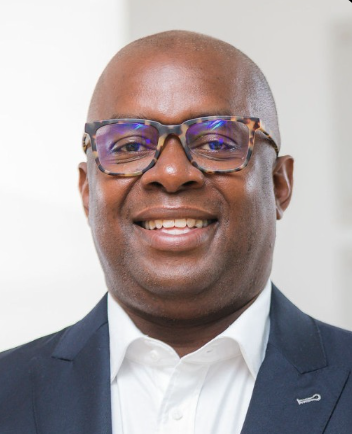
Richard Buery, Chief Executive Officer of the Robin Hood Foundation
Leading the Charge in Strategic Philanthropy
In my recent interview with Richard Buery, CEO of the Robin Hood Foundation, I delved into the heart of what makes this organization a leader in combating poverty in New York City. Renowned for its strategic and innovative approach, the foundation distinguishes itself through a focus on partnerships, advanced technology, data-driven strategies, and direct community engagement. This conversation revealed the depth of their commitment and the unique methodologies they employ in their mission to create lasting change in the lives of New Yorkers.
Mission and Strategy: Fighting Poverty Effectively
At the core of Robin Hood’s mission is the unwavering commitment to fight poverty in New York City. Richard Buery explains, “Our mission is to fight poverty in New York City.” This mission is pursued by investing in impactful organizations and leaders dedicated to driving program innovations. Buery emphasizes the foundation’s long-term goals, “helping families make the long-term move to live lives of stability and opportunity.” This approach transcends mere financial aid, focusing instead on enabling enduring change.
Data-Driven Philanthropy: The Benefit-Cost Calculator
Robin Hood’s distinctive feature is its reliance on a benefit-cost calculator, an innovative tool to measure the impact of each dollar spent. Richard Buery elaborates, “What is the actual poverty-fighting impact of a particular dollar in a particular program?” This data-driven approach ensures that investments are not just generous but also effective, maximizing the impact of every contribution.
Balancing Short-Term Relief with Long-Term Solutions
Addressing the challenge of balancing immediate needs with systemic changes, Buery articulates a dual strategy. “It’s not a choice between one or the other,” he says. The foundation’s portfolio balances investments in short-term emergency programs and longer-term initiatives like education and workforce development, ensuring comprehensive support for individuals and families.
Emphasizing Diversity: The Power Fund Initiative
A key initiative of the Robin Hood Foundation is the Power Fund, which focuses on addressing the historical underinvestment in organizations led by people of color. Buery notes the significant progress made, “Organizations led by people of color constitute 48% of our grantees.” This initiative ensures that solutions are culturally relevant and effective, aligning closely with the needs of diverse communities.
The Future of Philanthropy: Leveraging AI and Inclusivity
Looking ahead, the foundation is exploring the potential of AI in philanthropy, recognizing its transformative impact. “We’re trying to understand how AI will mean to the part of the world that we exist to serve,” Buery remarks. Moreover, the foundation places a strong emphasis on including the voices of those it serves in decision-making, ensuring that interventions are not only impactful but also closely aligned with the real needs of the community.
Building a Responsive and Agile Organization
The non-endowed nature of the Robin Hood Foundation infuses a sense of urgency and responsiveness into its operations. As Buery points out, “It enhances our need to be responsive.” This structure ensures that the foundation remains attuned to the evolving needs of the community and can adapt its strategies accordingly.
The Role of Technology in Modern Philanthropy
In embracing technology, the foundation is not only improving its internal processes but also looking at how technological advancements can benefit the communities it serves. From AI to large language models, the foundation is actively exploring how these technologies can be harnessed for greater societal impact.
Conclusion: A Model for Impactful and Responsive Philanthropy
The Robin Hood Foundation, under the leadership of Richard Buery, serves as a beacon of modern philanthropy. Its approach of combining immediate relief with long-term solutions, its reliance on data and technology, and its commitment to inclusivity and diversity make it a model for other organizations. Buery’s vision of philanthropy is one where impact is not a mere aspiration but a fundamental requirement, driven by the belief that “people deserve services that work for them, that actually change their lives.” This approach not only addresses the immediate challenges of poverty but also lays the groundwork for a more equitable and thriving society.
To listen to the full interview or read the transcript, just click here.
Denver Frederick, Host of The Business of Giving serves as a Trusted Advisor and Executive Coach to Nonprofit Leaders. His Book, The Business of Giving: New Best Practices for Nonprofit and Philanthropic Leaders in an Uncertain World, is available now on Amazon and Barnes & Noble.

